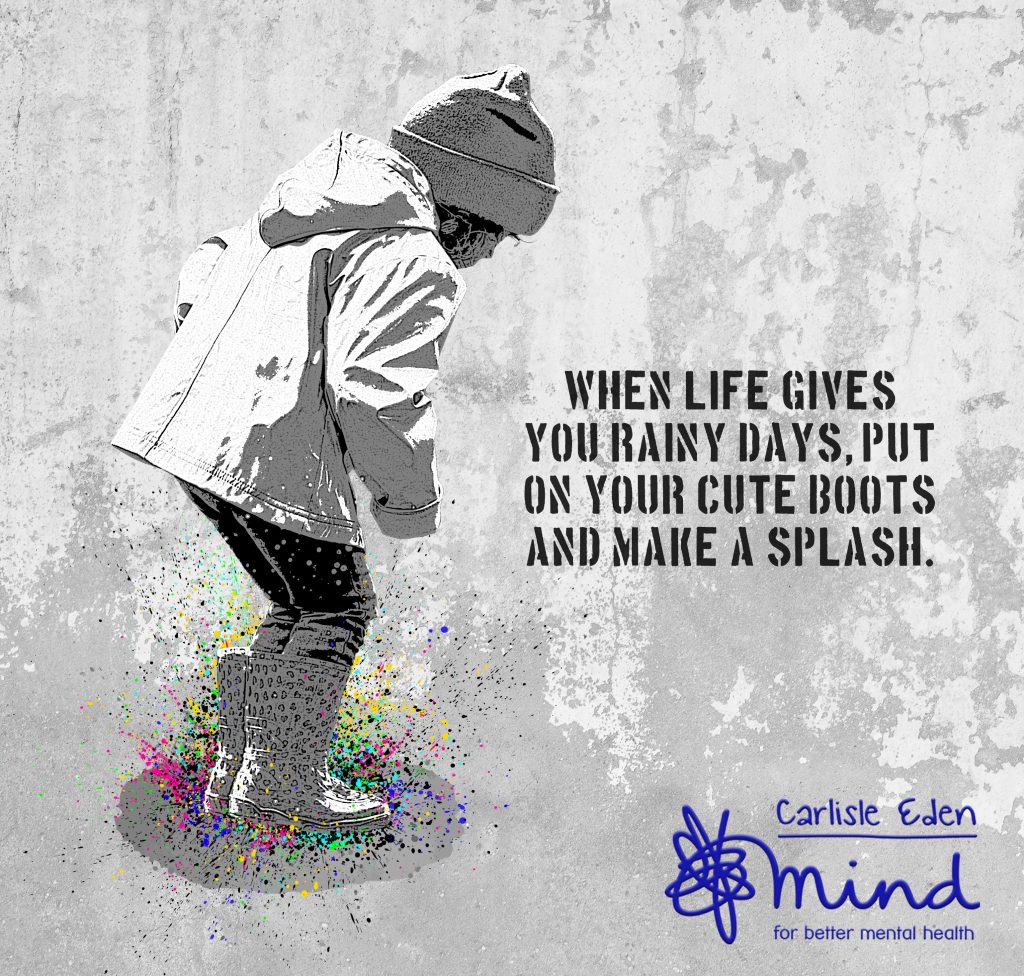Taking steps to look after your wellbeing can help you deal with pressure, and reduce the impact that stress has on your life. This is sometimes called developing emotional resilience.
“It’s overwhelming. Sometimes you can’t see beyond the thick fog of stress.”
There’s no medical definition of stress, and health care professionals often disagree over whether stress is the cause of problems or the result of them. This can make it difficult for you to work out what causes your feelings of stress, or how to deal with them. But whatever your personal definition of stress is, it’s likely that you can learn to manage your stress better by developing your emotional resilience, so you’re better at coping with tough situations when they do happen and don’t feel quite so stressed.
Resilience is not just your ability to bounce back, but also your capacity to adapt in the face of challenging circumstances, whilst maintaining a stable mental wellbeing. Resilience isn’t a personality trait – it’s something that we can all take steps to achieve.
For example, you can:
Make some lifestyle choices
There are some general changes that you can make to your lifestyle that could help you feel more able to cope with pressure and stressful situations.
- Practise being straightforward and assertive in communicating with others. If people are making unreasonable or unrealistic demands on you, be prepared to tell them how you feel and say no. The organisation Mind Tools provides tips on assertiveness on their website.
- Use relaxation techniques. You may already know what helps you relax, like having a bath, listening to music or taking your dog for a walk. If you know that a certain activity helps you feel more relaxed, make sure you set aside time to do it. See our pages on relaxation for lots more ideas.
- Develop your interests and hobbies. Finding an activity that’s completely different from the things causing you stress is a great way to get away from everyday pressures. If stress is making you feel lonely or isolated, shared hobbies can also be a good way to meet new people.
- Make time for your friends. When you’ve got a lot on this might seem hard, but it can help you feel more positive and less isolated. Chatting to friends about the things you find difficult can help you keep things in perspective – and you can do the same for them. Laughing and smiling with them will also produce hormones that help you to relax.
- Find balance in your life. You may find that one part of your life, such as your job or taking care of young children, is taking up almost all of your time and energy. Try making a decision to focus some of your energy on other parts of your life, like family, friends or hobbies. It’s not easy, but this can help spread the weight of pressures in your life, and make everything feel lighter. You may also be interested in taking a look at our blog post on creating a more healthy Work-Life balance
“When I’m stressed, I take myself away from everyone, into another room or somewhere quiet – even just for five minutes – and sing to myself. Not full on belting out a tune, but just quietly or even humming to myself, really calms me down.”
Look after your physical health
Taking steps to look after your physical health can help you to look after your mental health and reduce feelings of stress.
- Get enough sleep. Stress can often make it difficult to sleep, and can cause sleep problems. Getting enough sleep can help you feel more able to deal with difficult situations.
- Be active. Being physically active is important for both our physical and mental health. Even making small changes such as going for a regular walk outside may help you to feel less stressed.
- Eat healthily. When you’re stressed, it can be tempting to skip meals or eat too much of the wrong kinds of food. But what you eat, and when you eat, can make a big difference to how well you feel. (See our pages on food and mood for more tips.)
Give yourself a break
Learning to be kinder to yourself in general can help you control the amount of pressure you feel in different situations, which can help you feel less stressed.
- Reward yourself for achievements – even small things like finishing a piece of work or making a decision. You could take a walk, read a book, treat yourself to food you enjoy, or simply tell yourself “well done”.
- Get a change of scenery. You might want to go outside, go to a friend’s house or go to a café for a break – even if it’s just for a short time.
- Take a break or holiday. Time away from your normal routine can help you relax and feel refreshed. Even spending a day in a different place can help you feel more able to face stress.
- Resolve conflicts, if you can. Although this can sometimes be hard, speaking to a manager, colleague or family member about problems in your relationship with them can help you find ways to move forward.
- Forgive yourself when you feel you have made a mistake, or don’t achieve something you hoped for. Try to remember that nobody’s perfect, and putting extra pressure on yourself doesn’t help.
If you or someone you know needs support, you can access Mindline Cumbria in the following ways:
Call MindLine Cumbria on 0300 561 0000
Text ‘Mind’ and your question to 81066
Webchat at www.mindlinecumbria.org
Email info@mindlinecumbria.org
*Calls and texts charged at local rates and may vary dependent on your mobile phone contract.
We offer a broad range of information, support and guidance to anyone experiencing mental ill-health. We also offer support for anyone who may be concerned or supporting someone else who has mental ill-health.


















